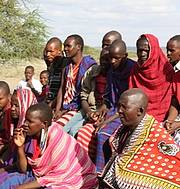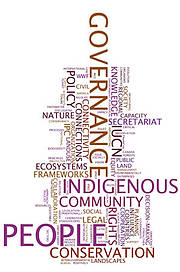Nature+ people and governance - Key messages from the IUCN Congress Forum
12 September 2012 | Article
Good governance is essential to conserve biodiversity and ecosystems that are necessary to meet the needs of people
This was the main message from the Forum, as reflected in these trends:
Local involvement is crucial for conservation and management of biodiversity and ecosystems to meet peoples’ needs
Locally managed approaches to conservation recognize traditional knowledge. Management and monitoring of natural resources by local stakeholders is a long-term and sustainable approach to conservation.
Locally managed marine areas (LMMA’s), an island-based solution, are a bright spot in conservation. They are being replicated and scaled across coastal communities globally. The networks of LMMA managers are providing important linkages for sharing experience and lessons. Peer-oriented learning networks also provide valuable tools and support for resource managers.
"It’s not just about the ecosystems but also the society that lives in those ecosystems" -- Bill Jackson, Parks Victoria
Indigenous peoples and local communities play important roles in developing meaningful environmental policy
Indigenous peoples and local communities are working with governments and civil society to develop conservation policy at local, national, regional and global levels. Involvement of indigenous and rural communities promotes greater understanding of local issues and the role traditional/historical rights play in stewardship of natural resources. Involvement of such groups also facilitates sharing of information and approaches as well as more effective partnerships and connections across landscapes to manage and conserve natural resources.
Needs and rights of indigenous peoples and local communities are influencing decision-making and policies today. Local institutions are providing links between local resource managers, government agencies and scientific organizations that enhance understanding of policy needs and actions.
"Conservation is an entry point to democracy" -- Russ Mittermeier, President of Conservation International.
Political will is fundamental to valuing natural and social capital
Conservation does contribute to poverty alleviation. Government leaders and their institutions are crafting policies that value natural and social capital. These policies are integrating human and conservation rights-based approaches, with gender and social equity. Socially integrated and cooperative approaches are reducing threats to sustained delivery of ecosystems services.
Visionary and powerful leaders at the local, national and global levels are having an impact. Policies provide the underpinning for private sector institutions, non-government organizations, and government agencies in multiple sectors to work together to address the breadth of issues affecting biodiversity and ecosystems. At the same time these policies are creating a climate for leaders in other countries to promote policies that value natural and social capital





